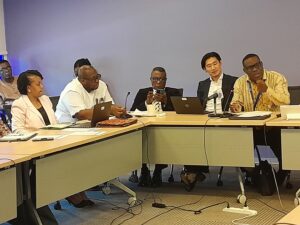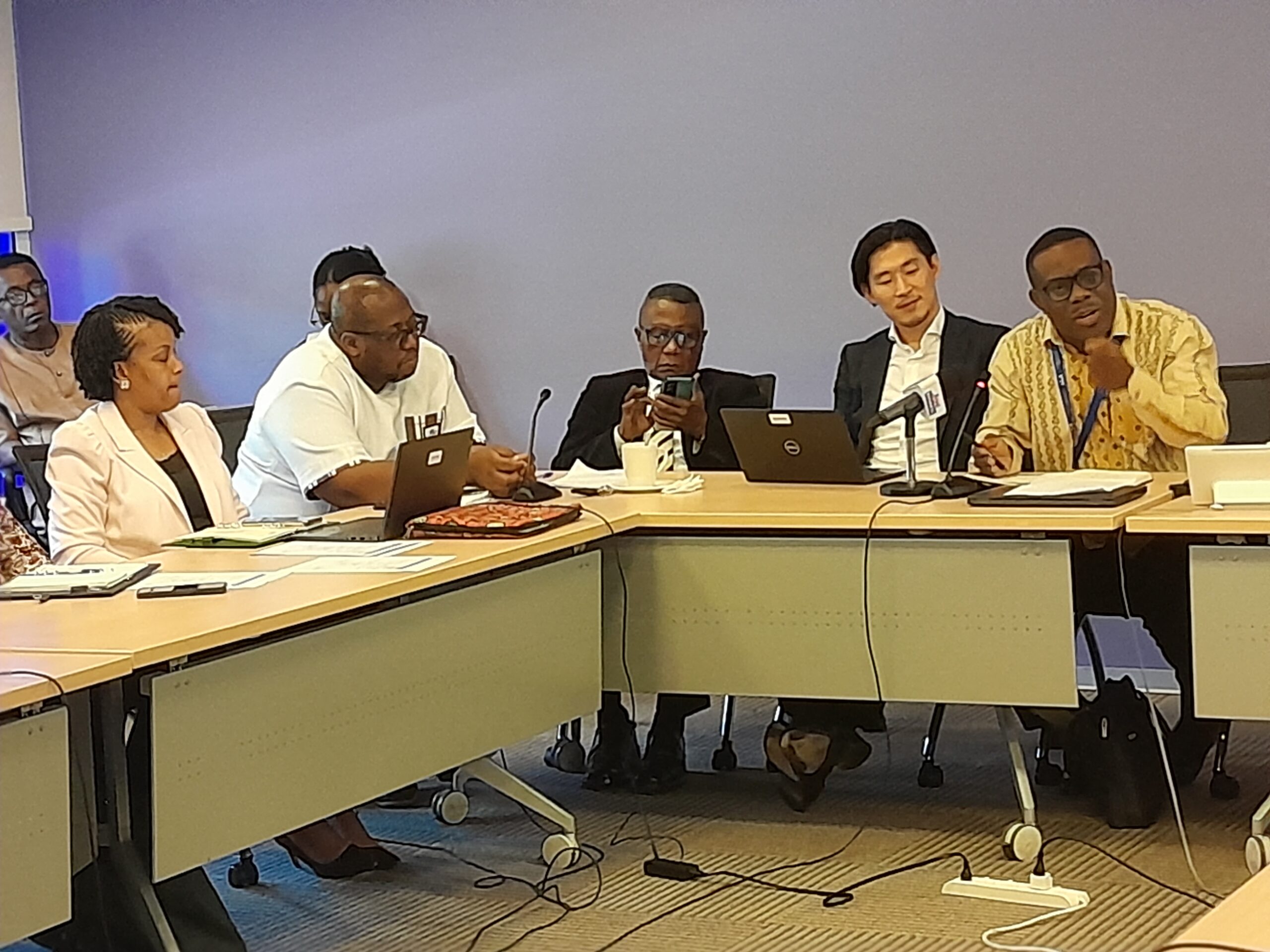
Accra, Ghana//-Participants and discussants at World Bank’s Roundtable on Public Finance Management (PFM) Reforms want the Auditor General’s external audit reports published in the newspapers.
According to them, if the annual spendings of the Auditor General are published in the media it would enable the Ghanaian public and others to know how much of their taxes are spent on the Auditor General and his activities.
Leading the charge at the well-attended roundtable discussion held in Accra on Friday, May 24, 2024, the Director General of Ghana’s Internal Audit Agency, Dr Eric Oduro Osae asked: “When are we going to see the Auditor General’s external audit reports publish in the newspapers?
This is because the Auditor General is our Auditor General. All public institutions’ audit reports are published on the website of the Auditor General. Where are the Auditor General’s external audit reports?”
According to Ghana’s 1992 Constitution, the Auditor-General of Ghana is responsible for auditing the public accounts of Ghana and of all public offices, including the courts, the central and local government administrations, the Universities and public institutions of like nature, of any public corporation or other body or organisation established by an Act of Parliament.
However, the monies that are approved for the Auditor General to work with are not therefore accounted for.
Whereas Ghana’s Parliament appoints external auditors for the Ghana Auditor service, its topmost supreme auditor, the Auditor General does not public his external audit reports. However, the Parliament looks on unconcerned.
Difference
“One thing we should all know is that the Office of the Auditor General is not the same as Ghana Audit Service. Ghana Audit Service is a public service created as a secretariat to support the Auditor General to deliver on his mandate.
So, if a particular year’s audit report is not submitted to parliament, parliament cannot hold Ghana Audit Service responsible, it can rather hold the individual called Auditor General responsible”, Dr Osae said.
Legislative framework
He added that Ghana needs some legislative framework to work on the Ghana Audit Service Act, stressing that the Audit Service Act is for the Ghana Audit Service.
However, we need another framework that will iron out specific terms like duties, and conditions of service of the Auditor General as a public and constitutional body, that are missing, according to the expert.
Unless they resolve that issue, they will continue to have this independence challenge. The Auditor General is separate from the Ghana Audit Service. Audit Service is a secretariat to support him, Dr Osae reiterated.
“He can decide to use private auditors to conduct external audits and submit his reports. No law binds him to use the auditors of Ghana Audit Service. But the audit service is a secretariat to support him. This understanding must go down to everybody so that the Auditor General’s independence can be guaranteed.
It also depends on the individual who is the Auditor General. He should be assertive, understand his role and say no to authority (the executive)”.
Strengthen the independence
Contributing to the discussion, the Director of Advocacy and Policy Engagement at Ghana Center for Democratic Development (CDD-Ghana), Dr. Kojo Asante added that the independence of the Auditor General must be enhanced to deliver.
Another discussant, the Director of Research of the Institute of Economic Affairs Ghana, Dr. John Kwabena Kwakye called parliament to strengthen the independence of the supreme audit institutions (SAIs)- Auditor General’s Office, and Ghana Audit Service.
He believes that the independence of the above-mentioned audit institutions must take account of their appointing authority.
“It looks like there is too much executive influence that is what compromises the independence of the institutions.
It must also go with greater accountability on the part of institutions, for instance releasing reports directly to parliament. Otherwise, parliament must have some oversight role”.
Touching on her yet-to-be-released report on SAIs, Madam Esinam Julia Nduom, financial management specialist underscored the importance of Supreme Audit Institutions (SAIs) which are public oversight institutions which audit a government’s use of public funds.
They are a critical link in a country’s accountability chain, according to her.
Risks
Madam Nduom identified compromised objectivity, increased risk of fraud, limited scope, political interferences, inadequate resources, lack of credibility, ineffective accountability, undermined trust, and insufficient transparency as the major risks associated with low Audit General and SAIs independence.
In the summary of the draft findings of the independence of SAI, she disclosed that there are gaps between the existing legal framework and the International Organization of Supreme Audit Institutions (INTOSAI) principles.
The INTOSAI is an intergovernmental organization whose members are supreme audit institutions.
In a welcome remark by Madam Michelle C. Keane, Operations Manager at the World Bank Ghana Office said: “Our engagement in Ghana over the years has included a wide range of projects to strengthen public financial management at the local and national levels, the latest being the US$150million Public Financial Management for Service Delivery Program”.
Reason
World Bank’s goal of ending extreme poverty and boosting shared prosperity on a liveable planet is linked with Ghana’s development priorities.
We cannot achieve this goal without the prudent use of scarce public resources. Effective public financial management, transparency, and accountability are at the core of our development agenda, she explained.
Madam Madam Keane noted that better public financial management creates the enabling environment for timely and accurate financial information and strengthened oversight— which in turn improves the trust of citizens in their government.
Improved management of finances can create the fiscal space for investments in human capital and infrastructure necessary for transformation to happen, she emphasised.
The Practice Manager, Governance Practice for Western and Central Africa Region at the World Bank, Ms Tracey Lane said: “We believe that the future of government starts with the social contract between the government and citizens”.
Governments face changing and growing demands and expectations from their citizens, and there is an opportunity to re-examine what governments do for their citizens and what citizens do for their governments.
After listening to the participants at the roundtable, the Regional Director of economics, Finance, and Institutions for Western and Central Africa Region at the World Bank, Abebe Adugna said: “There is, indeed, plenty to reflect upon from the divergent ideas we heard here today”.
Mr Adugna agreed: “Enhancing accountability in the use of public resources requires a robust institutional framework, enforcement of these provisions, and transparency in all undertakings.
Ghana can be a leader in all these. But the management of public affairs also requires the active participation of non-state actors such as yourselves.
Ghana boasts a strong civil society which has remained a partner of the World Bank in many of our engagements in the country and I look forward to seeing many such engagements in the future”.
Instructively, the World Bank Ghana Office hosted the roundtable discussion was attended by Civil Society Organizations (CSOs), development partners, and government counterparts under the World Bank CSO Platform to discuss their joint effort to improve public financial management – especially regarding transparency and accountability.


